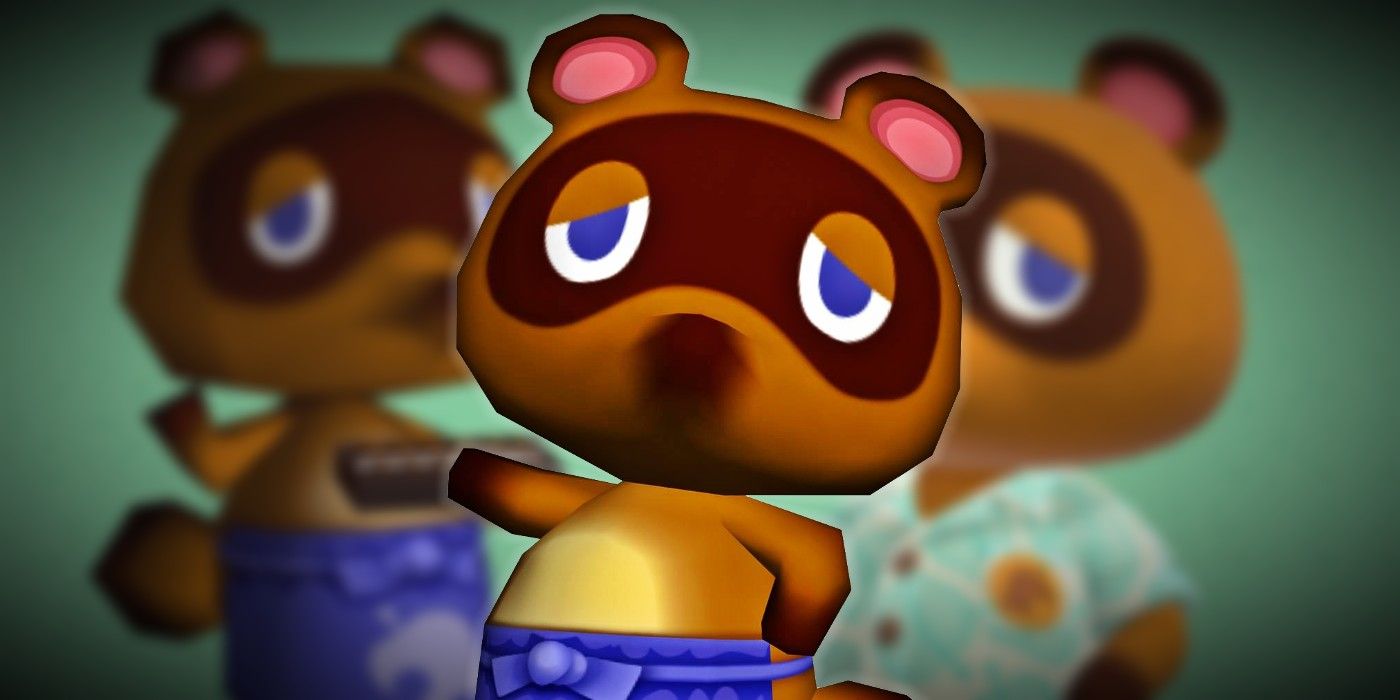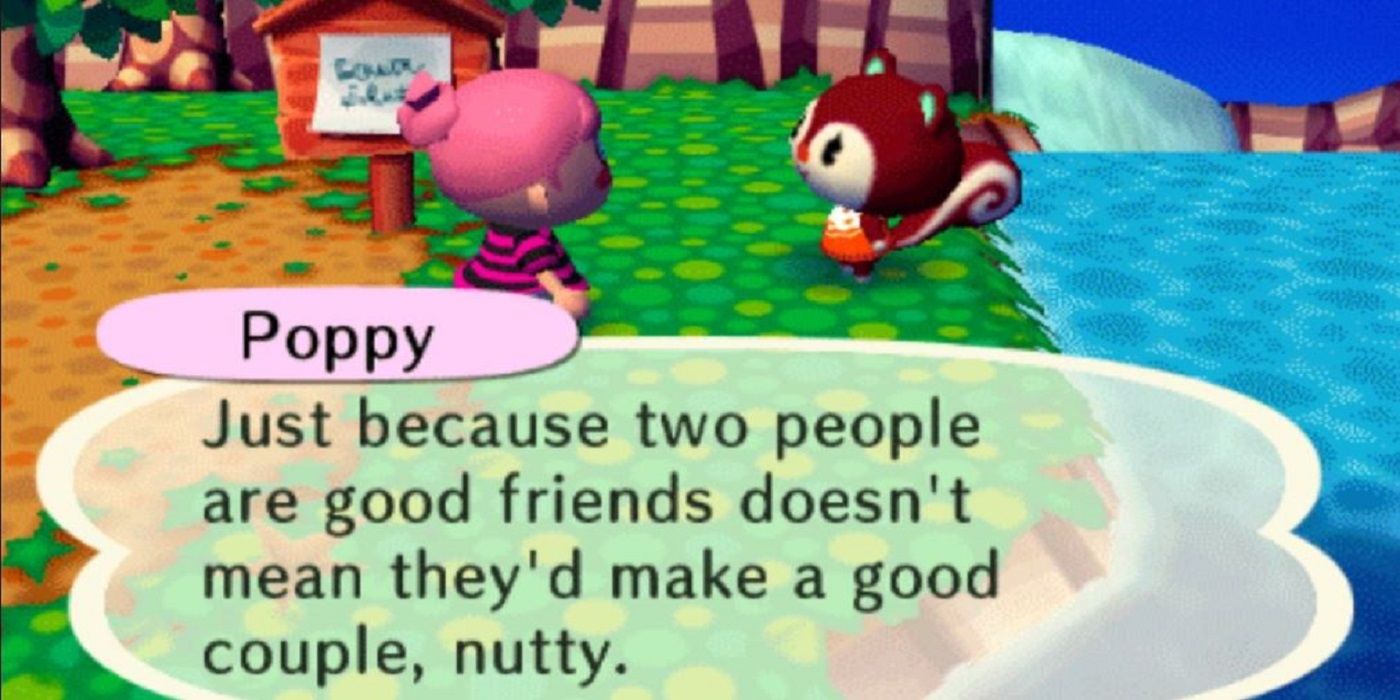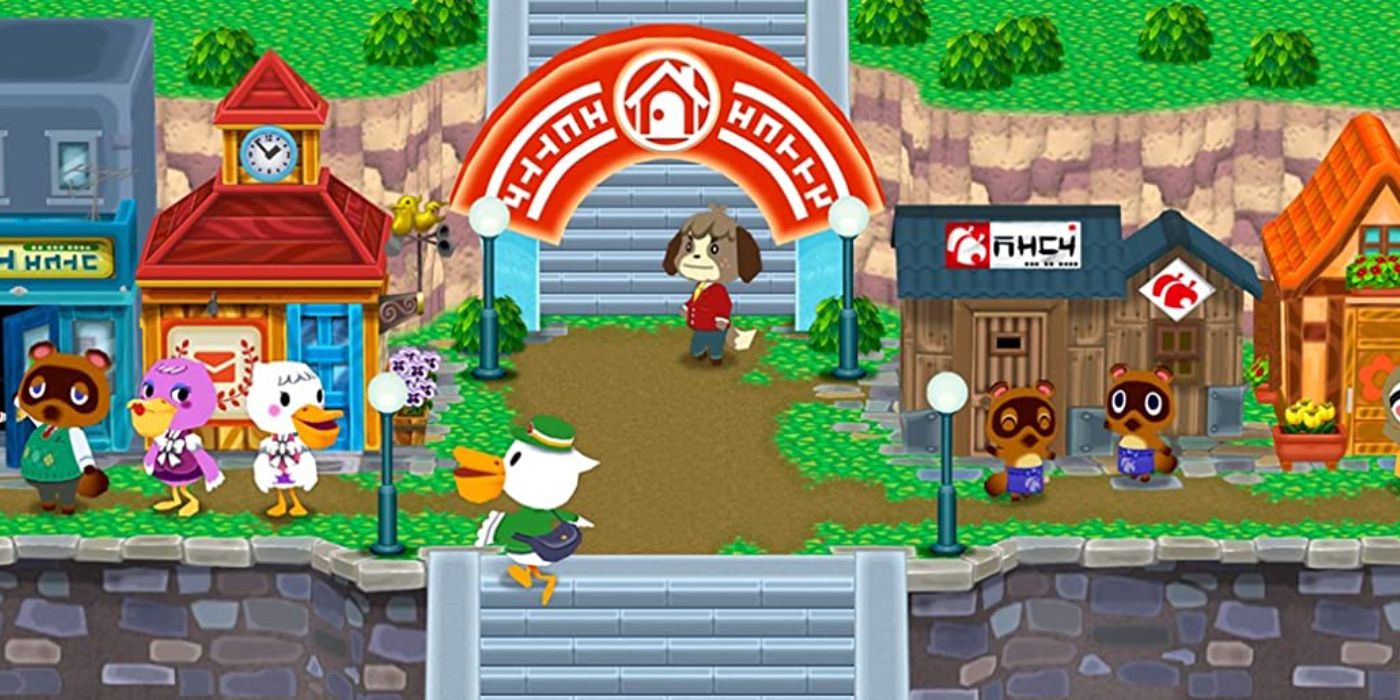The sequel to Animal Crossing: New Horizons could learn a lot from classic past installments in the long-running Nintendo series. A lot of pressure has already been put on this hypothetical game because of the success New Horizons had on the Nintendo Switch, and in moments where there is a lot on the line for a video game series, returning to its roots is is often a smart idea.
Looking backwards will be important for the Animal Crossing: New Horizons sequel not just because of the stakes, though. New Horizons brought a lot of changes to how Animal Crossing is played as a game. Rather than prioritizing villager interactions, New Horizons emphasized customization by offering a humongous catalog of decorative items and enabling players to place furniture outside. Consequently, the next installment in the series must play a balancing act of adding to and enhancing New Horizons' furniture customization options while bringing some of the more classic elements of Animal Crossing back to the forefront.
When considering what the next Animal Crossing game could take from older installments in the series, a few things come to mind. Namely, the next Animal Crossing game needs to fix the way players and villagers build relationships while also creating a more distinct setting. New Horizons was lacking in these areas, so seeing how the classic Animal Crossing games excelled in them can help the New Horizons sequel offer the now-expected range of customization options while also maintaining the series' brand.
The Villager Interactions Of Animal Forest Should Come Back In New Horizons
Doubutsu no Mori (or Animal Forest, as the Japanese version of the original game is called) is missing a lot of what Animal Crossing: New Horizons has to offer. Customizable exteriors, huge DLCs, a much larger pool of villagers and items to collect from - New Horizons is partly popular because it's massive when compared Animal Forest. However, Forest beats New Horizons in one particularly significant area, and that's villager interactions.
Building relationships with one's villagers is the central point of the Animal Crossing series, even with all the new customization options Nintendo has added over the years. As such, it is a shame that Animal Crossing: New Horizons is so limited with its villager interactions. No player truly shares dialog with any individual villager; instead, players share dialog with personality types. See, villagers in New Horizons have their dialog limited to their personality type, meaning every villager in a personality type will say the same things. The only things that differentiate villagers in New Horizons are their catchphrases and nicknames that set them apart. In contrast, Animal Forest villagers had individual things about their personalities they would talk about: Some might like reading while others may hate a specific type of shirt. This led to interactions that could only be had with the villagers a player had on their island, in turn making the game much more personable.
Additionally, the process of building relationships was a lot more rewarding in Animal Forest. In the Nintendo Switch title, building friendships is the easiest part of the game. Simply gifting a villager valued items in New Horizons can quickly get players into max friendship levels with all of their villagers. In Animal Forest, the villagers were plainly mean. They behaved as if they only befriended those who would immediately benefit them; as such, at the lower levels of friendship, players basically can only run errands for them. Even talking to a villager too much may get them upset to the point they start yelling. A New Horizons could benefit a lot from these sort of relationship dynamics, as it would make the warmth of villagers in New Horizons more rewarding if they are like the villagers in Animal Forest at first.
New Leaf's Main Street Should Return In New Horizons' Sequel
Animal Crossing: New Horizons topped sales charts largely because of how well it did customization. Players can design their community of villagers in the exact way they desire. However, to accomplish this, the islands in New Horizons are basically complete blank slates. They have almost nothing to offer until a lot of work is put into them. Even the islands shops need dedication, as it is up to players to choose where they go. While this allows players to instill value into their islands through the work they put into them, the lack of features New Horizons' islands begin with can make them feel alarmingly devoid of character.
Animal Crossing: New Leaf has a very different setup. With Main Street, stores have a permanent location in their village's business sector, which is made to look like a cute, small-town area. This gives villages in New Leaf something missing in New Horizons: a distinct identity. The village one becomes the mayor of feels like an actual community. Of course, New Horizons' premise is that the island a player builds is supposed to be deserted, but a bit of action on the island at the start would have gone a long way in developing the traditional Animal Crossing experience. New Horizons' sequel should thus try to integrate a Main Street area.
Another reason why New Horizons' sequel should bring back a Main Street area is because of how cool it was in New Leaf. The stores and their evolutions - especially the Nook Emporium's - looked great, whereas the store designs in New Horizons felt bland at beast, and stagnant at worst. Animal Crossing: New Horizons' sequel could thus do a lot with some of the designs seen in New Leaf's Main Street. Plus, were a Main Street area brought into the game, it could incorporate customization options for the stores and other thematic and visual elements of the area itself, enabling players to continue making their village their own even if the stores themselves were to have more permanent locations.
While the past games can teach the next Animal Crossing game a lot, Animal Crossing: New Horizons and the direction it has brought in for the series are great. Having such a large variety of villagers to befriend while also getting to have near complete control of the design of the island they live on makes for a relaxing, fun experience. If anything, hopefully the next game at least remembers to keep Bunny Day as short as possible.



